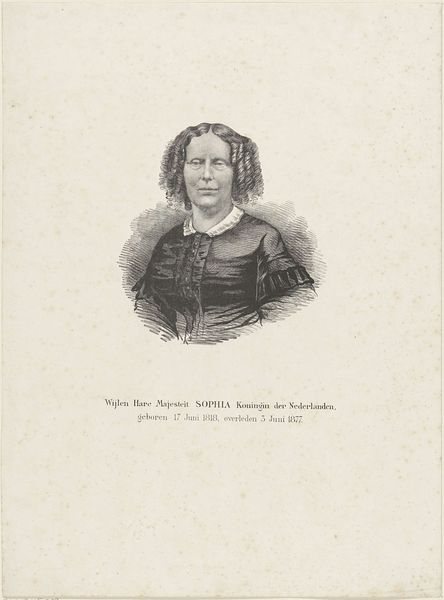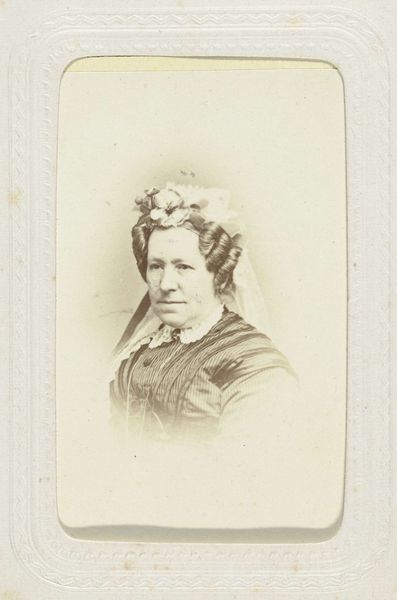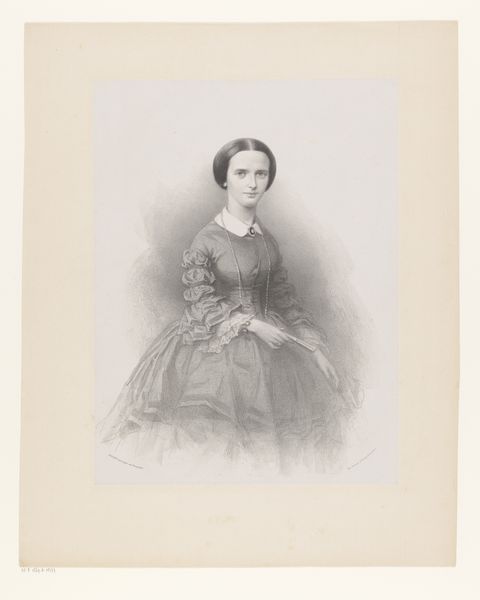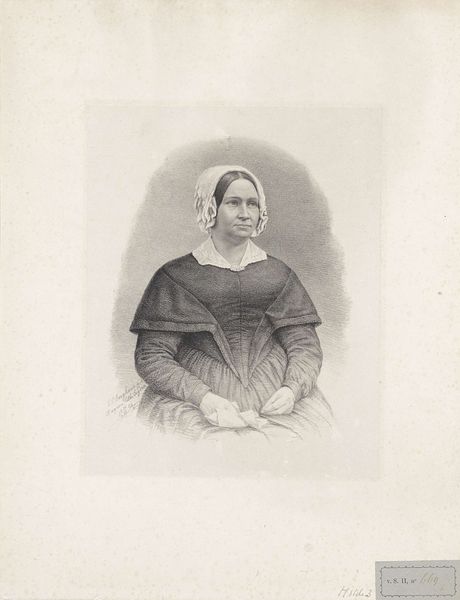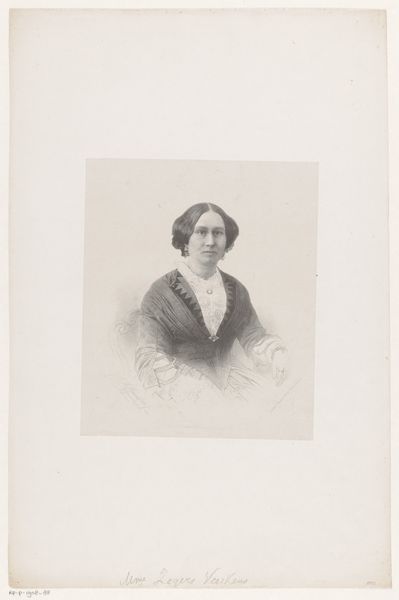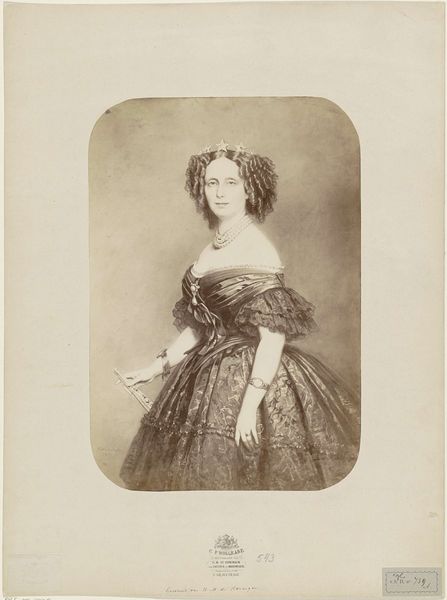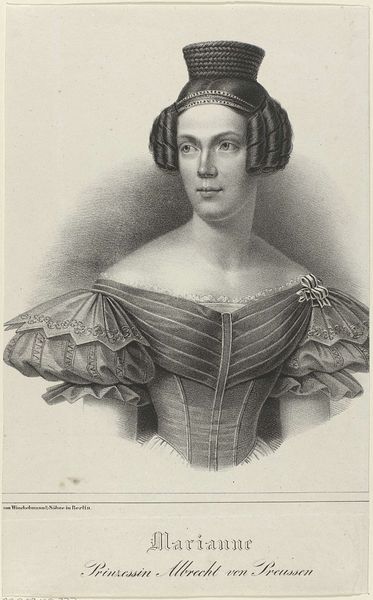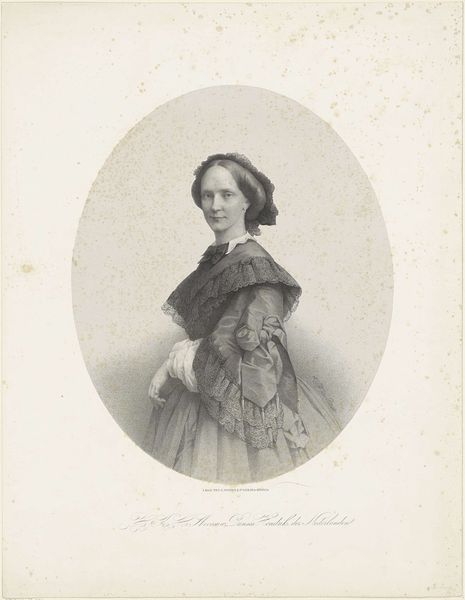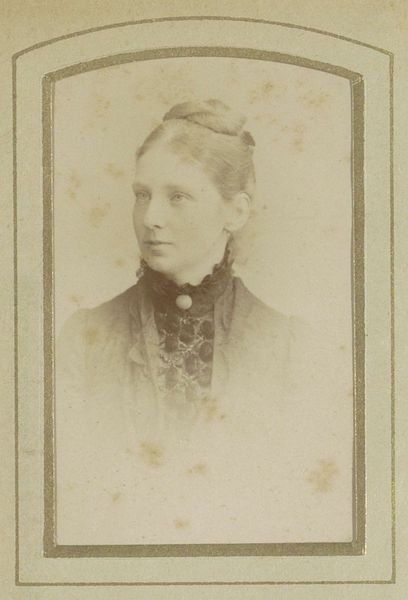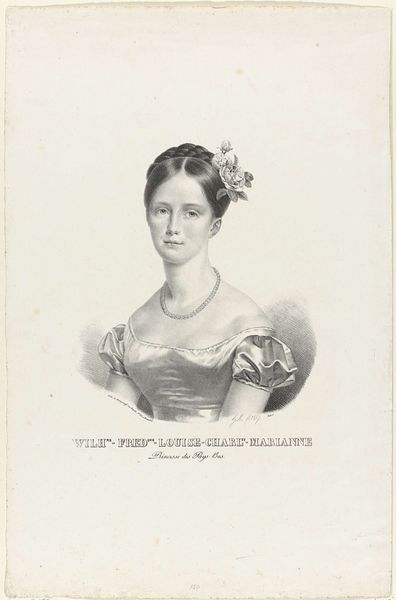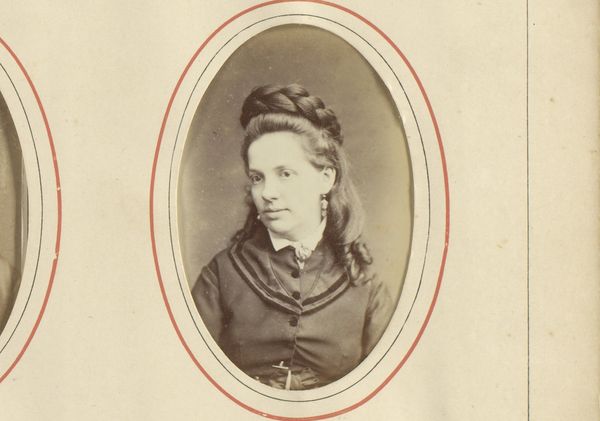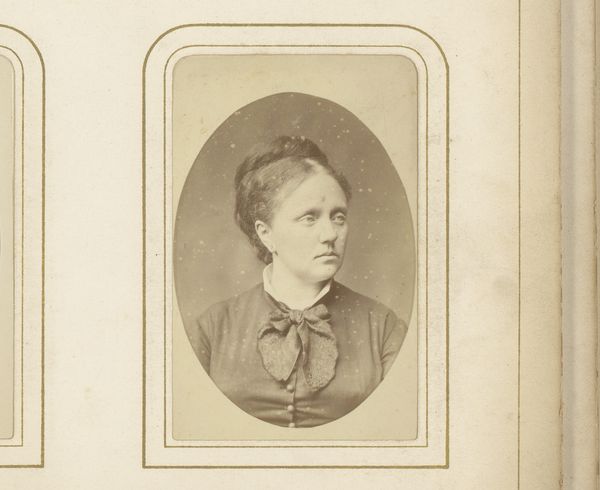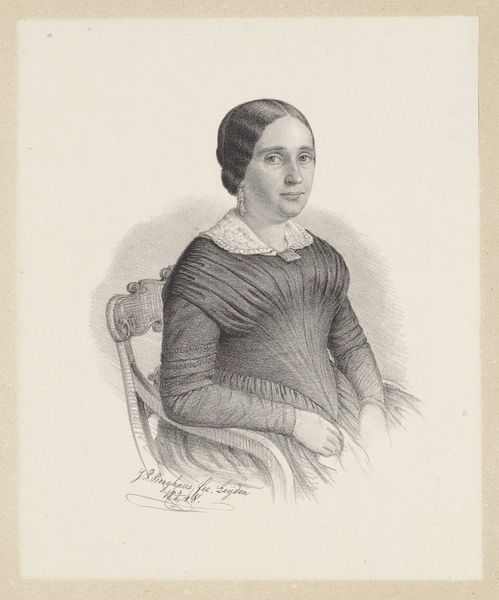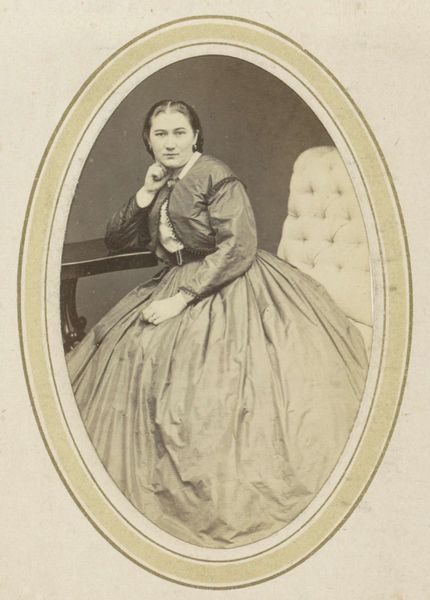
#
pencil drawn
#
light pencil work
#
wedding photograph
#
photo restoration
#
pencil sketch
#
old engraving style
#
portrait reference
#
pencil drawing
#
portrait drawing
#
pencil work
Dimensions: height 504 mm, width 400 mm
Copyright: Rijks Museum: Open Domain
Curator: Welcome. Here we have an intriguing portrait, identified as "Portret van Sophie van Württemberg," housed right here at the Rijksmuseum. It’s dated rather broadly between 1849 and 1899 and is rendered using what appears to be graphite or a similar drawing medium. Editor: It has a very austere feel to it. The tonal range is subtle, the line work precise… a very restrained portrayal, wouldn't you agree? There is an emphasis on capturing details rather than conveying emotions. Curator: I do. Look at the very delicate cross-hatching used to define the shadows on her face. The artist displays impressive control over the medium. Notice the subtle variation in line weight around the eyes. Editor: Absolutely, it's skillfully executed. However, it makes me think about how royal women like Sophie were often represented during this time—objects of political alliance and domestic virtue more than fully realized individuals. The lack of any overt emotional expression supports this notion of control and restraint dictated by gender roles. Curator: An astute observation. I might also draw your attention to the way the oval frame emphasizes her isolation within the image. This, coupled with her serious demeanor, imbues her with an air of almost melancholy detachment. I suggest that this might be interpreted through an exploration of historical notions about sovereignty, obligation, and possibly the isolation of ruling families. Editor: Indeed. Her story, as the Queen Consort to King William III, was one of immense social pressure, caught between the rigid expectations of the Dutch court and her own intellectual inclinations. It's perhaps not reading too deeply to find a hint of that tension mirrored in her unflinching gaze here. How her person becomes a marker of larger conflicts between tradition and a modernizing world. Curator: Thank you, it provides another valid way to examine the work. Its meticulous execution serves as a study in portraiture. I've gained new appreciation through considering these complex historical contextual factors. Editor: Likewise. I find it fascinating how studying form can lead into complex socio-political considerations. This portrait, in the end, sparks compelling conversations about a time rife with cultural tensions and unresolved societal questions.
Comments
No comments
Be the first to comment and join the conversation on the ultimate creative platform.
